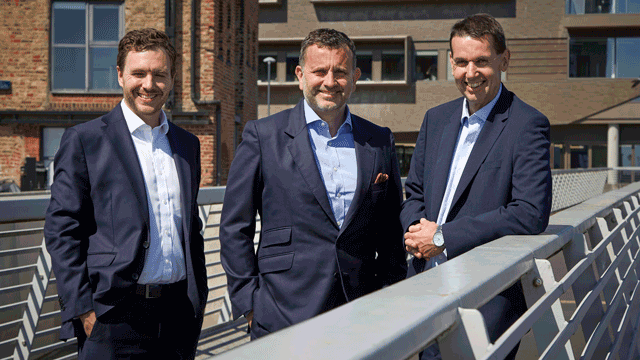 Since joining CBRE, many of my conversations with property chief executives have been revolving around a concern that long-standing business models may not be appropriate in this competitive Euro property market.
Since joining CBRE, many of my conversations with property chief executives have been revolving around a concern that long-standing business models may not be appropriate in this competitive Euro property market.
The question of how to react to current conditions has never been more important.
Capital flows are now truly global and there continues to be a wave of capital looking to invest in European real estate, which shows no sign of abating. Our latest research reports that Europe remains the preferred location for international investment (42% of all cross-regional investors are looking to invest in European real estate this year).
From a city perspective, London is still the favourite and remains way out in front, with 32% of investors surveyed looking for assets here. Recent reports suggest the €1.1tn (£800bn) quantitative easing programme will see even greater demand for European real estate as the monies gradually feed into these economies.
Aside from geographical issues, real estate investors are also changing their approach to the type of investments they are targeting. We have recently seen a number of previously solely opportunistic investors moving into the core/core-plus arena and vice versa; core plus investors are looking further afield. In particular, cross-border capital is increasingly being seen outside London. Purchasers from outside Europe made up 35% of the value of non-London purchases in the UK in Q1 2015, compared with 27% in Q1 2014 (28% in 2014 as a whole).
Investors are also seeking investment economies of scale and portfolio transactions providing income risk diversification are becoming more commonplace once again. Add to this the fact that negative bond yields look set to continue and it means there are now “new” investors, who had not previously considered real estate opportunities, breaking into the real assets markets. All of this makes it ever harder to source assets.
This competition is also having an impact on rents and yields. Prime rental values continued to increase in Q1 2014, recording a UK average of 1.2% growth over the first three months of the year. Prime yields fell by an average of 11bps over the quarter to stand at 5.5% at the end of Q1 2015, according to CBRE’s Prime Rent and Yield Monitor. I expect there will be a further reduction in the spreads over government bonds and more yield compression at the direct property level, particularly in core markets. To illustrate the point, our team in Bristol is currently marketing an office investment opportunity at a sub-5% yield, which would have been non-existent a few months ago.
There is also an increasing ability to leverage this capital further. Bank lenders are now prepared to provide competitive terms for quality sponsors. However, both equity and debt capital are far easier to raise than they are to deploy, as there is a strong reluctance to sell core assets as no replacement is readily available.
In short, competition is incredibly high. The availability of capital and the requirement to deploy makes decision-making in the current environment ever more difficult. Many of the conversations with chief executives revolve around a concern that business models, which have worked so well over many years, may no longer be appropriate in the current market. As a result, they are looking to challenge the very foundation of their businesses – requiring far more strategic thought around company structures, funding, locations and business partners – a precarious position for those who are inexperienced and, at best, far more risky for the remainder.
The industry is, therefore, at an interesting point in the market cycle where, almost certainly, it is far easier to make mistakes, with firms starting to venture into less well-known areas and increasing their risk from both a value and strategic perspective. It is imperative that businesses do not forget what they are good at. The successful businesses, in the main, are those which build on their core competencies and adapt their strategies accordingly. It is for these reasons that the current level of opportunity poses a greater risk than for many years – history will show that at this point of the cycle it is those businesses that stay focused on what they do best which continue to outperform the pack over the long term.
Richard Dakin is managing director at CBRE Capital Advisors










